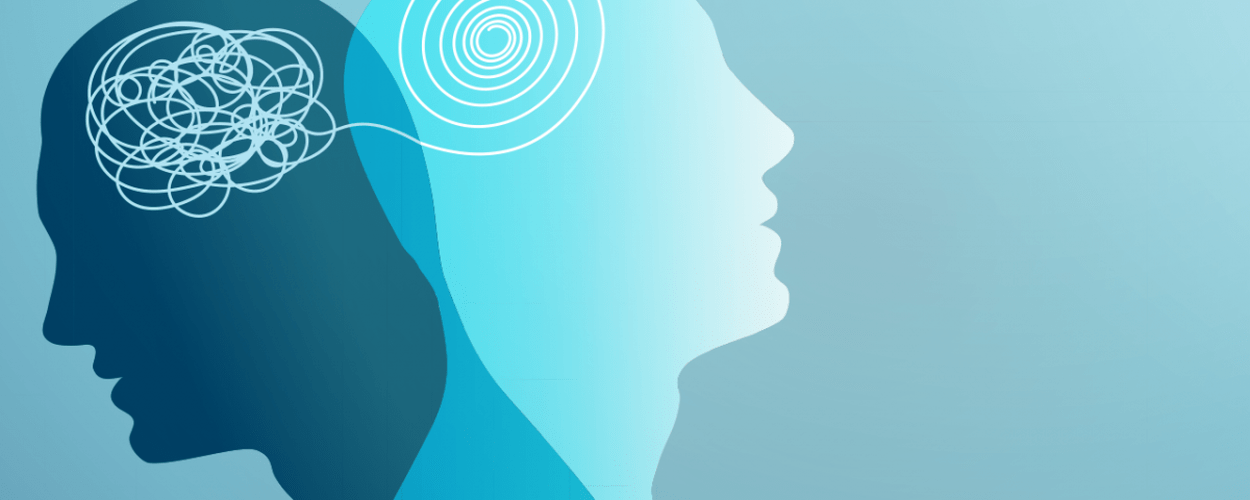Bipolar Disorder
Bipolar disorder, also known as manic-depressive illness, is a mental health condition characterized by extreme mood swings that include episodes of mania and depression. Manic episodes involve feeling extremely high, euphoric or irritable, while depressive episodes involve feeling extremely low and hopeless.
During a manic episode, individuals with bipolar disorder may have increased energy, decreased need for sleep, racing thoughts, impulsivity or risk-taking behavior, and difficulty concentrating. During a depressive episode, they may feel sad, hopeless, fatigued, have difficulty sleeping or eating, and lose interest in activities they once enjoyed.
The exact cause of bipolar disorder is not fully understood, but it is believed to be caused by a combination of genetic, environmental, and neurological factors. Trauma or stressful life events can trigger the onset of symptoms in some individuals.
Bipolar disorder is typically diagnosed based on the presence of manic or depressive episodes, lasting at least one week, that cause significant distress or impairment in daily functioning. Treatment options for bipolar disorder include psychotherapy, medication, or a combination of both.
Mood stabilizers such as lithium, anticonvulsants, and antipsychotic medications are commonly used to manage symptoms of bipolar disorder. Psychotherapy, particularly cognitive-behavioral therapy (CBT), can help individuals learn coping skills to manage their symptoms and improve their quality of life.
It's important to remember that everyone experiences bipolar disorder differently, and treatment plans will vary depending on the individual needs of each person. Seeking professional help from a healthcare provider or mental health provider can help in developing an effective plan to manage bipolar disorder symptoms. With proper treatment and support, many individuals with bipolar disorder can lead fulfilling lives.
DIAGNOSIS AND TREATMENT
Diagnosing bipolar disorder typically involves a comprehensive evaluation by a healthcare provider or mental health professional. This may include a physical exam, a psychological evaluation, and a discussion of symptoms and personal medical history.
Bipolar disorder is typically diagnosed based on the presence of manic or depressive episodes, lasting at least one week, that cause significant distress or impairment in daily functioning. The diagnosis is made when these episodes occur repeatedly over time.
Treatment options for bipolar disorder include psychotherapy, medication, or a combination of both. Mood stabilizers such as lithium, anticonvulsants, and antipsychotic medications are commonly used to manage symptoms of bipolar disorder. These medications work to regulate mood and prevent episodes of mania or depression.
Psychotherapy, particularly cognitive-behavioral therapy (CBT), can help individuals learn coping skills to manage their symptoms and improve their quality of life. CBT for bipolar disorder focuses on identifying and changing negative thought patterns that may contribute to mood swings, as well as developing strategies for managing stress and preventing relapse.
It's important to note that everyone experiences bipolar disorder differently, and treatment plans will vary depending on the individual needs of each person. Seeking professional help from a healthcare provider or mental health provider can help in developing an effective plan to manage bipolar disorder symptoms.
In addition to therapy and medication, other strategies such as exercise, stress reduction techniques, and maintaining a regular sleep schedule may also be helpful in managing bipolar disorder symptoms. Family support and education is also an important component of treatment. Learning how to effectively communicate and interact with individuals with bipolar disorder can help family members provide the best possible support and care.
Overall, while bipolar disorder can be a challenging condition to manage, effective treatment options are available that can help individuals with bipolar disorder lead fulfilling lives.

